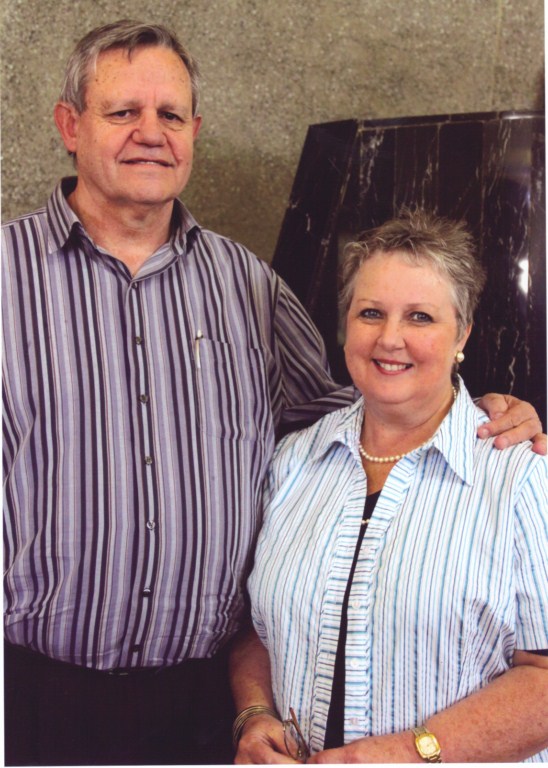Frank Theron was raised in a rather dysfunctional home which was largely dominated by alcohol abuse throughout boyhood. Inevitably he would follow the pattern of his father and soon became involved in the vices of the world, something which would eventually cost him his first marriage. Frank qualified as an Industrial Engineer after he had gotten married and has spent most of his lifetime working on the base metal and gold mines of South Africa. Having grown up within the traditional church in South Africa, it was only in 1986 that he had an encounter with Jesus Christ and surrendered his life over to God. From this time onward God started establishing within him a passion for the lost having a clear understanding of this world . During the early 1990's God imparted upon him the desire to reach further into Africa, but had very little understanding of what it was God wanted him to do. In 1992 Frank through his church became aware of the need to support a missionary in the Caprivi region of Namibia, to work among the Lozi speaking people. In that year, and a number of consecutive years, he took mission outreach groups to work among those people. These early stages of mission work were very elementary, but with time he became more and more aware of the immense need for the Gospel, especially in the African context. In the mean time that particular missionary was recalled to South Africa and for a period of time Frank and his family worked there alone. Two new churches were planted there during this period. From 1999 the focus moved away from the Caprivi to Mozambique as his particular congregation had sent a mission couple to northern Mozambique, specifically in Chá Gurué, Zambezia province of Mozambique. Periodically Frank was involved with taking outreach groups from South Africa to this region.  During June / July 2011 Frank again took an outreach group to Gurué, and although the outreach was to take place within the historical context of previous missions, God had other plans. It was now time to respond to God's call to full time ministry. During this last outreach God clearly pointed out two important aspects:The traditional methods of reaching the lost, although deliberate and effective, were slow and and not achieving full penetration. This was primarily due to the methods of evangelisation and church planting employed, often coupled to the training and availability of pastors / trained leaders, building churches, etc. The process is therefore inward rather than outward. It had become vital that the focus again extend outward to reaching the masses and that it should occur at a faster rate.
God brought to our attention two prominent forerunners with regard to Discipleship and Church Planting. These were:
These principles were further enhanced by the "Into Africa Project" (Church planting in Africa) approach to church planting. Then finally David Watson and the "Church Planting Movement" came onto the radar screen and it was this simple but powerful approach that really set the scene for church planting in Northern Mozambique (and beyond):
The
huge unbeliever / unchurched deficit within northern Mozambique (a total population of approx 10-11 million people), together with
the end time urgency, creates a wonderful spiritual climate and environment for rapid (exponential) church planting to be introduced. From here the vision was established to start a process of disciples planting disciples, leaders planting leaders, churches planting churches. This process is rapid and intentional and individuals, families, communities, people groups, towns, regions and finally the country are redeemed and transformed by God. Thus GOSPEL INTO AFRICA is born and the dry bones are rapidly gathering flesh (Ezek 37). |